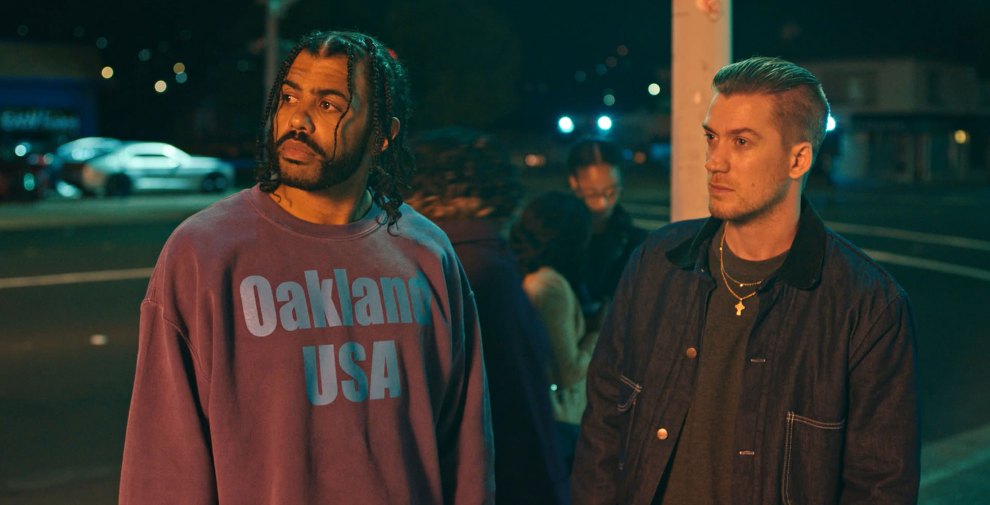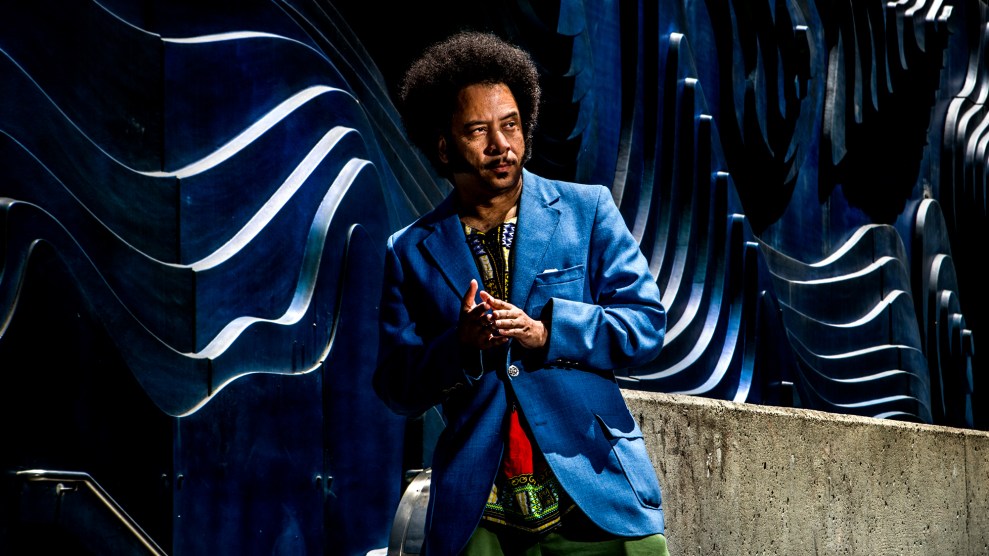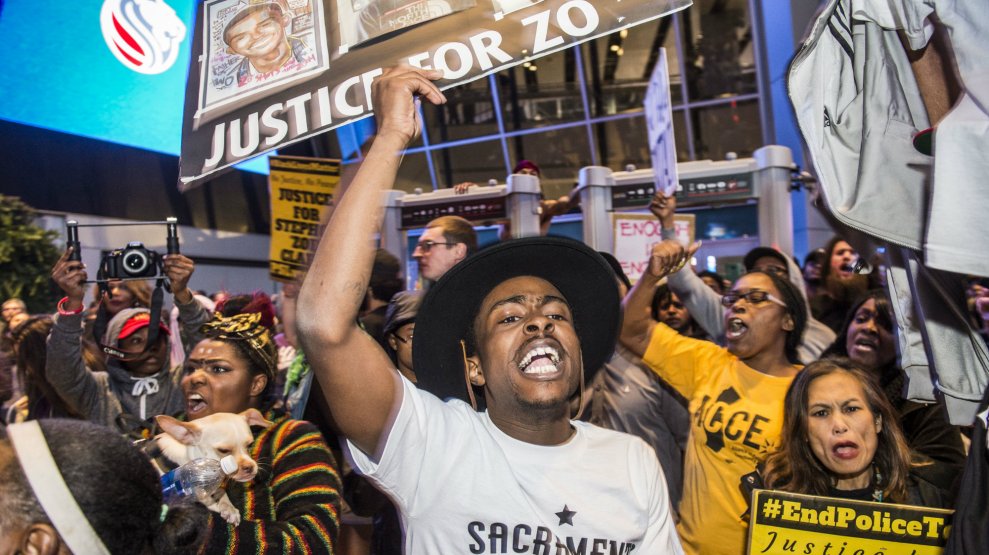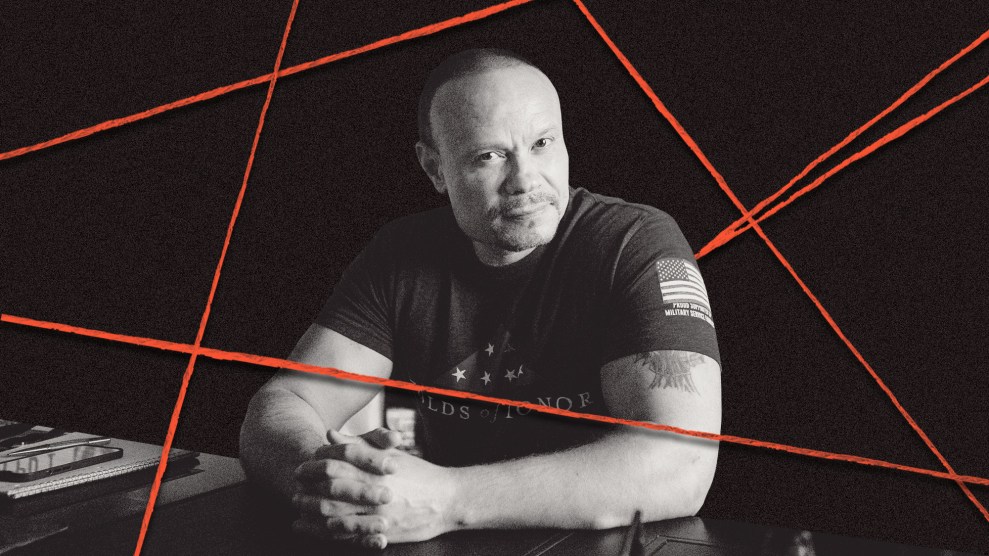
Ariel Nava/Lionsgate
For nearly the last decade, Tony-award winning actor and rapper Daveed Diggs and his creative partner Rafael Casal have been working to capture their rapidly-changing home of Oakland, Calif. as it wrestles with a longstanding identity crisis. In their new film, Blindspotting, the two friends try to figure out their place in it, even as gentrification engulfs their old stomping grounds and the familiar tension with police lingers over the city.
Now, in their witty-yet-weighty dramedy film, Blindspotting, Diggs and Casal confront the moment when black art and culture are replaced by high rents and hipster bars as more and more Oakland natives find themselves displaced by an influx of tech workers. Diggs, best known for his role on the Broadway hit Hamilton, plays Collin, a convicted felon who was recently released from jail on parole and is trying to restart his life alongside his fast-talking, light-skinned best friend Miles who has a bit of a troublemaking streak. One night, while he’s out driving, Collin sees a cop shoot a black man on the run, and the violence rattles Collin as he tries to make it through his last three days of parole unscathed.
Layered with gripping monologues and meditations on police brutality, the film confronts race relations in a gentrifying city where police brutality has remained a front-and-center issue for almost a decade. Blindspotting serves as the latest silver screen homage to Oakland, premiering just weeks after Sorry to Bother You, the highly-acclaimed satire by filmmaker Boots Riley, and five years after Ryan Coogler’s Fruitvale Station, which documented the story of Oscar Grant, who was shot and killed by a white BART police officer. The Fruitvale station shooting was an inflection point for rising tensions between the police and communities of color in Oakland, and the duo says it heavily influenced the film.
When Grant was killed blocks away from where Diggs was living at the time, the city changed. “It’s the unavoidable, loudest-ringing truth, running through the city at a time when the city is just starting pick up with this influx of new people,” Casal told me. “This was a beacon of the problematic relationship between the community and the authority in that area that had gone unaddressed for decades and was ripe for discussion.”
Ahead of the film’s release on July 20, Diggs and Casal, who both now live in Los Angeles, spoke to Mother Jones about their hometown’s growing pains, police shootings on social media, and the way victims are treated in the court of public opinion.
Mother Jones: How is Oakland changing, and what made you want to document that?
DD: There’s a huge demographic shift that has to do mostly with money. Neither of my parents live in Oakland anymore. They both live Richmond now because they can’t afford to live in Oakland. My dad was born and raised in Oakland. Every time we go, physically, the landscape of the place changes. Businesses flip around. The things we used to go do, or the places we used to go hang out at aren’t there anymore. Rafa and I were living in an apartment with my brother and with our friend. It was a four-bedroom place with a huge backyard and we were each paying, what, $300 or something like that?
Rafael Casal: Yeah.
DD: That was 2010. Not even that long ago, you know? And I can not even imagine what that same place goes for now. We shot very close to there. The complicated part is the paving over of a community that already existed. It feels like a very intentional erasing of history.
RC: He kind of nailed it. The incredible amount of tent cities that surround Oakland right now, we didn’t have that growing up. You have this incredible visual for the economic disparity between the poor and the wealthy. For so long, we wanted things for the community that are now in support of the industries that have moved in on top of the community. Every time I go back to the East Bay, I’m heartbroken again. There’s this beautiful city that needed help that is just being bulldozed over for people who don’t care about anything but the land.
MJ: Why center a story about Oakland around the death of a black man at the hand of a cop?
DD: Because it’s a story about these two friends, we needed an incident that could affect the two differently, despite the fact that they grew up in exactly the same circumstances. There had to be some way to make them have a conversation that they had never had before. I was living three blocks away from Fruitvale Station when Oscar Grant happened. So it was in the air. The nature of that conversation has changed a lot over time. Then, it was about a community protesting, the outrage and the shock of this event. Where we are now, we can’t even remember the names [of those killed.] Collin had to, in fact, witness it in order to be personally affected by it.
The only people who we see who are genuinely changed by the shooting are Collin and Officer Molina, the witness and the shooter. We’re at a point where the discussion is so commonplace that we can’t keep track of it. No matter how similar they are, Miles can’t be in Collin’s shoes for a number of reasons and it’s not just a racial reason. It’s also that he wasn’t there.
RC: That’s a great metaphorical divide. You can’t experience something that you weren’t present for. You can’t fully understand something that you don’t live every day. That parallel between one person having seen something visceral that derails you and the other person just hearing about it.
MJ: Given the rise of shooting videos coming through our social media feeds, do you think we are also experiencing those tense moments differently today?
DD: Because we are privy to evidence that often was hidden from us, there is a greater opportunity for accountability. That makes it more infuriating that there is so little accountability, that it seems like there are so many ways in which a police officer or a person in power can escape prosecution for these acts.
There’s this desensitizing end of it where we have watched people get murdered, for real, by police officers. We’ve seen it a lot. We just watch the tapes of it. To be confronted with that so often that it’s not surprising, it’s just sad in a way that feels so defeated, in a way that feels like, “Well, what are we supposed to do about this when we can watch it happen and it’s still gonna happen again?” Nobody believes that that’s the last time we’re gonna see one anymore. That’s fuckin’ tragic, you know? I used to think, “Oh, maybe if we spread this around enough and if there’s enough awareness about this, then things will change. Then it never has to happen again.” I don’t have that feeling anymore. I have the feeling of, “Oh, fuck. Another one? How long is it going to be? How much of a break do I get from this?”
That’s the huge tragedy of this. Collin’s in this unique position, having been there and with all of the things that are coming to a head in his neighborhood, where he’s driven to the brink. He is so hyper-aware that he is not in control of his own safety that he starts to spiral out of control, and he’s not sure how he can manage to get through the day until he is presented with the opportunity to make himself heard by the object of his fear. He, just through happenstance, gets the opportunity to say things in a way that forces that police officer to listen to him. That might not change anything, but at least his voice was heard. If he dies the next day, it’s not in the same way that Randall died, you know, in this way where he didn’t get to say his piece and he was just running away. He was heard by somebody.
MJ: Back in April, you guys performed a memorable spoken word piece at CinemaCon. There was a line that stuck out to me, that asked, “How perfect does a black boy have to be before we mourn him? And how quickly must a neighborhood vanish for us to notice?” What do those questions mean to you?
RC: The response to a shooting is always, immediately, a character attack on the person who has been killed. The person who’s not there to defend themselves is ripped apart while a police officer gets to defend themselves. The police officer’s reputation gets to, at least, be on trial. In the court of opinion, people try to play both sides of it but we have this immediate inclination to find reasons that the man or the boy or the woman or the girl deserved to die by way of having any level of a flawed existence.
DD: That extends to sexual assault, too. It’s a thing we do in this country: look for flaws in the victim.
RC: Yeah, we criminalize victims. As if a flawed character concludes that you are deserving of any level punishment. But I think that’s the response that I have every time someone is killed and we hear the breakdown in the news of who that person was. There was a shooting in Sacramento where the kid was found in his own backyard. He was shot at 20 times. He was hit eight times, most of which in his side and in his back. They still found ways to show that he was not completely in the right in being killed on his own property holding a cell phone. As if it was wrong for him to have his phone in his hand.
There’s always some reason that the police are allowed to fear for their lives enough to brutally massacre an unarmed person. There’s something inherent in either the training or the psychology or the fraternity of police that makes them predisposed to determining an inherent hostility towards, or negative deficient of, black and brown bodies.
The question is out of desperation. How perfect does someone have to be before you won’t think them criminal? How quickly do you need to see Oakland disappear before you notice that it’s vanishing? It’s something about the ease it takes, of the comfort of a slow burn, that makes the animal being cooked alive not realize it’s boiling. I’m afraid of it.
DD: I think of Collin in the film because he is, regardless of what he does, being put into the position of an observer. One of the things the film does particularly well, at least in the screenings we’ve been at, is that people are scared for Collin and empathizing with him and feeling bad for him. You feel the helplessness of that situation. You’re rooting for him. And I think that’s great because you’re rooting for a convicted felon who’s carrying a gun. That is an answer to that question. It doesn’t have anything to do with the perfection of a human being. It has to do with understanding them as a human being who deserves the same benefit of the doubt as any of your friends. If one of your friends went to jail, for whatever reason, and you knew them to be a good person, you wouldn’t think they deserve to die for no reason. You wouldn’t think that some unrelated action warranted their death.
That could be true of a fictional character, who went to jail for a violent crime, who you’re watching wave a gun in somebody’s face. If you can do that, then we can also have that kind of empathy for real people. [laughs]
RC: Yeah, if you can empathize with Collin, hopefully you can empathize with the next person you see on the news, because there will be a next person, and have a different conversation about it.

















